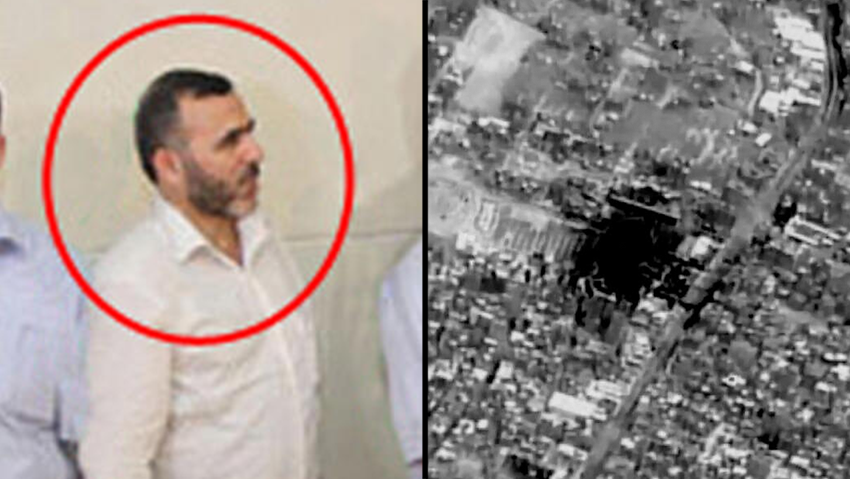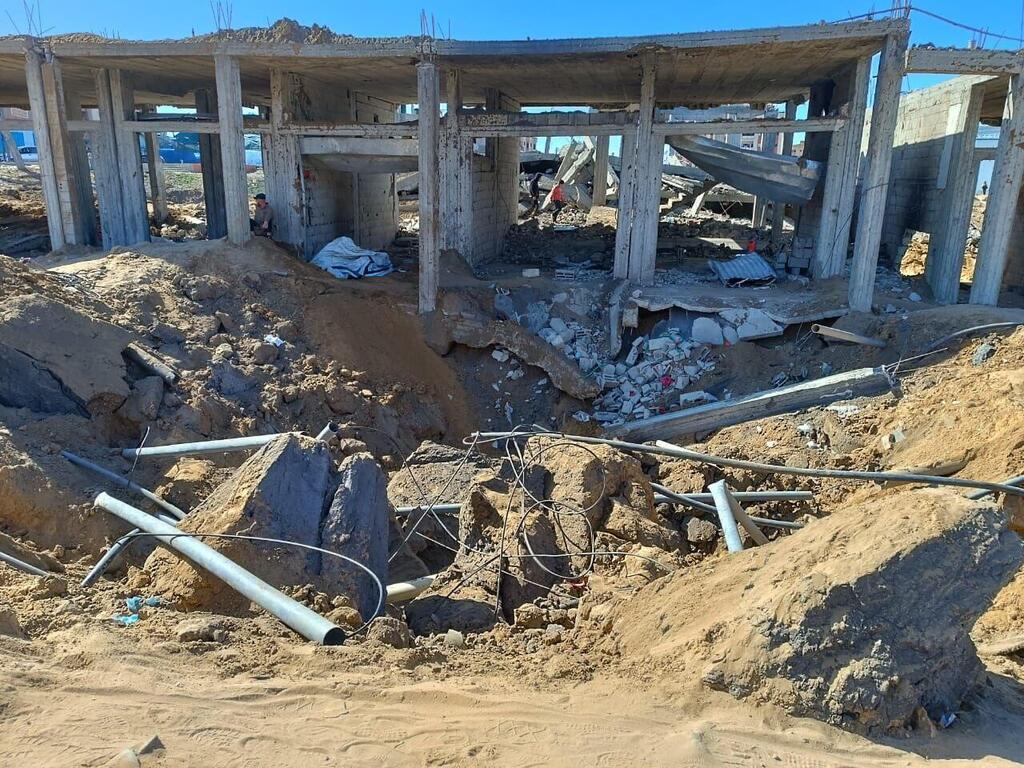Getting your Trinity Audio player ready...
Marwan Issa, deputy to Hamas' supreme military commander Mohammad Deif, was badly injured in a recent IDF strike on central Gaza's Nuseirat, "but his fate remains unclear," London-based newspaper Asharq Al-Awsat reported on Sunday, citing Palestinian sources familiar with the matter.
2 View gallery


Marwan Issa; IDF drone footage on his supposed hideout in Nuseirat, central Gaza
(Photo: IDF Spokesperson's Unit)
According to The Guardian, all Hamas communications systems between senior leaders – which rely on encrypted apps and couriers – "went silent for more than 72 hours after the strike, as has happened on several previous occasions when senior Hamas leaders have been killed."
Experts told the newspaper that the targeted attack against Issa could indicate Israel is receiving information from a senior figure within Hamas' leadership.
“Israel would have needed to know where and when Issa was hiding, that he would remain there with time for the cabinet to approve and [Israeli’s military] to launch the operation, and would have needed to confirm that no Israeli captives were being held near him as human shields – something that could have only been confirmed via a human asset,” Avi Melamed, a former Israeli intelligence official and regional analyst, told The Guardian.
Last Friday, security officials informed Cabinet ministers that evidence was mounting suggesting Issa had indeed been killed.
Prime Minister Benjamin Netanyahu praised the operation, calling it "a significant Israeli achievement."
More stories:
Issa, serving as the deputy to Mohammad Deif, is a founding member of the terrorist group's military wing and is considered the third highest-ranking member of the Hamas leadership in Gaza, following Yahya Sinwar and Deif.
Last week, the IDF and Shin Bet conducted a series of airstrikes in the central Gaza Strip, targeting a tunnel where Issa was believed to be hiding in an attempt to eliminate him.
The heavy bombardments, accompanied by Internet and electricity cutoffs, took place in the Nuseirat refugee camp.
Prime Minister Netanyahu and Defense Minister Yoav Gallant hinted at his assassination, given indications that he did not survive the attack.
Issa is regarded as one of the architects of the October 7 surprise attack. If indeed eliminated, it would be the most significant assassination since the war began.
So far, the highest-ranking members of Hamas' military wing eliminated since the war’s outset were brigade-level leaders - Ayman Nofal and Ahmed al-Ghandour.
2 View gallery


The aftermath of the IDF's strikes on Issa's supposed hideout in Nuseirat, central Gaza
In addition, Saleh al-Arouri, a senior Hamas figure operating from Lebanon and responsible for a series of Hamas attacks in the West Bank, was assassinated in Beirut in January.
Over the years, Issa played a pivotal role in developing military systems for the Al-Qassam Brigades, Hamas' military wing, making him a wanted figure in Israel.
He was among the most sought-after leaders in the Hamas hierarchy and was the target of Israeli assassination attempts in 2006 during a meeting with Deif and other leaders, as well as in 2014 and 2021, when his house was bombed, killing his brother.
His identity was not publicly known until 2011 when he was photographed during the release of Palestinian inmates as part of a prisoner exchange deal for the freedom of IDF soldier Gilad Shalit.
Issa, 59, made very few public appearances even before the war. He has been considered the liaison between Hamas' military and political leadership in the Gaza Strip since 2012, a role that provided him with extensive connections within Hamas and granted him significant power and influence in both wings.
Last week, when asked whether Issa had been killed, senior Hamas official Mohammad Nazzal said, "Only the Al-Qassam Brigades can confirm or deny Marwan Issa's death."



